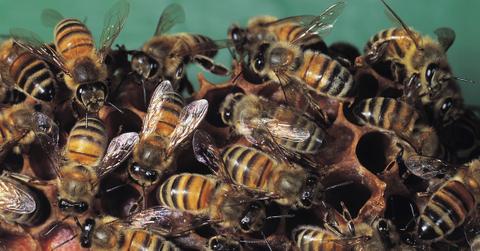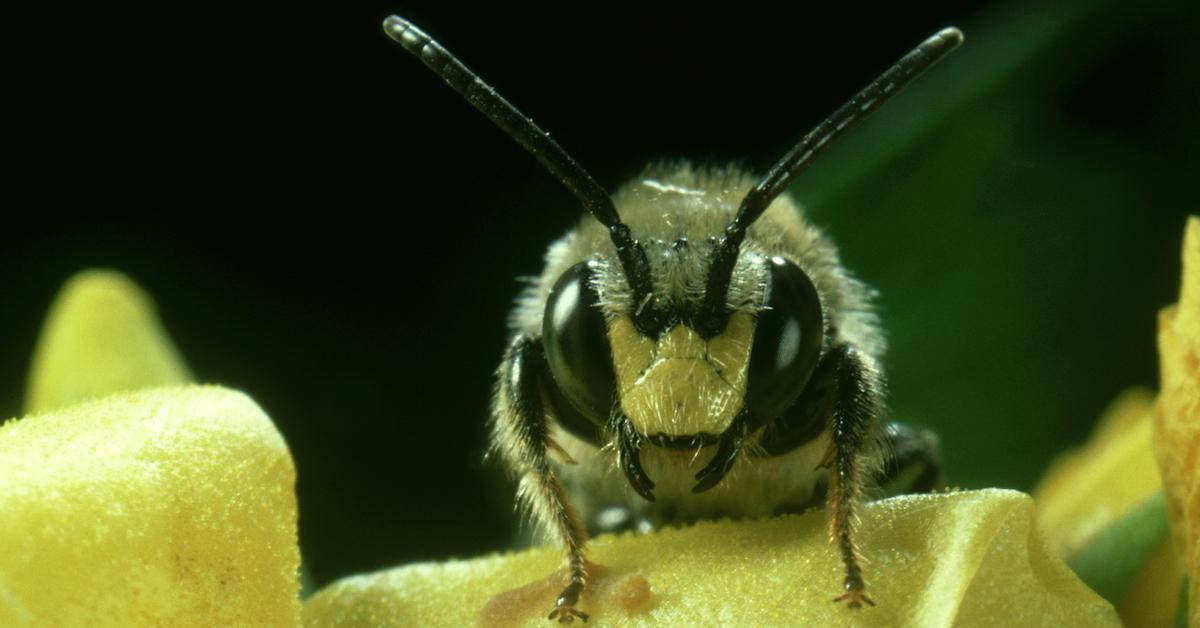In California, Bees Are Classified as Fish — Here’s Why
Published June 2 2022, 12:55 p.m. ET

Conservationists around the world are constantly fighting for the rights of bees — although they're merely insects, they're crucial pollinators, which means human life depends on them for food. But the state of California recently made major strides in doing so, by classifying them as fish under the Endangered Species Act.
But why is California classifying bees as fish, and why is this so monumental within the realm of conservation?
“It is a great day for California’s bumble bees. Today’s decision confirms that California Endangered Species Act (ESA) protections apply to all of our state’s imperiled native species and is critical to protecting our state’s renown biodiversity,” Defenders of Wildlife's Pamela Flick stated, per a press release.
“Bees and other pollinators are integral to healthy ecosystems and the crucial pollination services they provide serve all of us, making this decision exponentially more consequential.”
“With one out of every three bites of food we eat coming from a crop pollinated by bees, this court decision is critical to protecting our food supply,” Rebecca Spector, West Coast Director at Center for Food Safety, also stated in the press release.
“The decision clarifies that insects such as bees qualify for protections under CESA, which are necessary to ensure that populations of endangered species can survive and thrive.”
Why are bees classified as fish in California?
It turns out bees can be considered fish, too. Agricultural groups found that bees were being protected by the ESA by being classified as "fish." Under California's ESA, per the press release, endangered species can be birds, mammals, fish, amphibians, reptiles, or plants, leaving out other types of threatened species like insects.
But since the definition of fish includes wild fish, mollusks, crustaceans, invertebrates, and amphibians, bees are taking on the classification of invertebrates.
“A fish, as the term is commonly understood in everyday parlance, of course, lives in aquatic environments,” the ruling stated.
Based on this ruling, fish don't need to only include marine animals, and the classification can also include other insects. Because pesticides are wiping out so many types of insects, this could ultimately be monumental for many types of pollinators and bugs alike. The bees in question included four native bees that conservationists have been petitioning to protect since 2018.
“With one out of every three bites of food we eat coming from a crop pollinated by bees, this court decision is critical to protecting our food supply,” Rebecca Spector, West Coast Director at Center for Food Safety, stated in the press release. “The decision clarifies that insects such as bees qualify for protections under CESA, which are necessary to ensure that populations of endangered species can survive and thrive.”

Farmers are most accountable for bee habitat destruction.
Although climate change in general is wiping out plant species, and therefore, destroying bee habitats, farmers are a leading contributor to the destruction of bee populations.
Because of irresponsible land clearing practices, bee habitats are completely wiped out. Pesticides commercial farmers tend to use also kill bees. The destruction of their homes, food sources, and use of poisonous pesticides makes it incredibly hard for bees to survive.
Though individuals are less liable for the destruction of bee habitats, there are ways in which you can protect the bees. Let your lawn grow wild, grow native wild flowers, and consider opting for a vegan diet of locally grown, plant-based foods — every bit of effort counts.